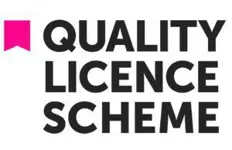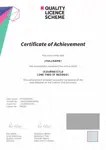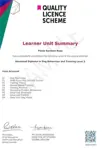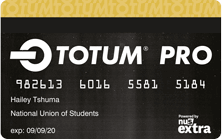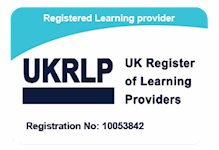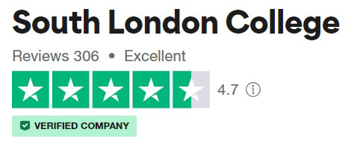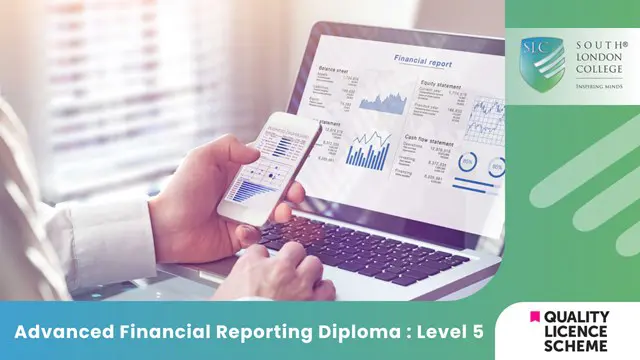
Advanced Financial Reporting Diploma : Level 5
Level 5 Diploma | Endorsed by Quality License Scheme | QLS Endorsed Certificate Included
South London College
Summary
- Certificate of completion - Free
- Exam(s) / assessment(s) is included in price
- Tutor is available to students
- TOTUM card available but not included in price What's this?
Overview
Diploma in Advanced Financial Reporting - Level 5
Are you aspiring to get into financial reporting? Or are you looking for some progression in your finance career? If the answer for one of these questions is yes, then this Diploma in Advanced Financial Reporting – Level 5 might just be the course for you. This advanced course aims to build on your basic financial reporting knowledge by taking you through all the financial accounting processes and principles to create and report financial statements within an organisation.
This comprehensive course will familairse you with the role of financial reporting within an organisation. You will be taught on how to create effective financial statements and statements of financial position to help the management make appropriate strategic decisions based on them. Topics such as equity finance, group accounts, long-term finance, piecemeal acquisition, foreign currency, cash flow and many other aspects of advanced financial reporting will also be duly covered through this course.
The role of equity finance in raising capital will be emphasized in this course, followed by modules that will explore the advanced financial reporting techniques needed for a smooth financial reporting process. By the completion of this course, you will possess all that you need to get into or make substantial progress within the finance industry.
The course has been endorsed under the Quality Licence Scheme. The completion of this course alone does not lead to a regulated qualification* but may be used as evidence of knowledge and skills gained. The Learner Unit Summary may be used as evidence towards Recognition of Prior Learning if you wish to progress your studies in this subject. To this end the learning outcomes of the course have been benchmarked at Level 5 against level descriptors published by Ofqual, to indicate the depth of study and level of demand/complexity involved in successful completion by the learner.
The course itself has been designed by Imperial Learning Limited* to meet specific learners’ and/or employers’ requirements which cannot be satisfied through current regulated qualifications.
The Quality Licence Scheme endorsement involves robust and rigorous quality audits by external auditors to ensure quality is continually met. A review of courses is carried out as part of the endorsement process.
Eligible for TOTUM card - TOTUM is the #1 student discount card and app giving you access to exclusive student deals on food and fashion, tech and travel and everything in between.
*Regulated qualification refers to those qualifications that are regulated by Ofqual / CCEA / Qualification Wales
Achievement
Course media
Description
What Will I Learn?
- Gain a clear understanding of your job role in financial reporting within an organisation.
- Become an expert at understanding financial statements, creating and reporting them.
- Learn how to develop statement of financial position.
- Gain an understanding of the fundamentals of cash flow and statements of cash flows.
- Learn about disposals and re-organistions.
- Gain an accredited qualification that will take your skills and knowledge to the next level.
COURSE CURRICULUM
★ MODULE 01 : Long-Term Finance
- Long term finance
- Equity finance
- Debt finance
- Other long-term finance
★ MODULE 02 : Raising Equity Finance
- Raising equity finance
- Initial public offering (IPO)
- Private placement
- Private equity
- Rights issues
★ MODULE 03 : Cost Of Capital And Capital Structure
- Cost of finance
- Dividend growth model
- Cost of preference shares
- Cost of debt finance
- Weighted Average Cost of Capital (WACC)
- Uses of WACC
★ MODULE 04 : Group Accounts – Introduction
- Introduction to group accounts
- Parent’s separate financial statements
- Group financial statements
- Pre-and post-acquisition reserves
- Acquisition accounting: goodwill and fair values
- Chapter Summary
★ MODULE 05 : The Statement Of Financial Position Part 1
- Overview
- Intra-group trading
- Unrealised profits
- Dividends
★ MODULE 06 : The Statement Of Financial Position Part 2
- Introduction
- Fair value measurement
- Non-controlling interests
- Mid-year acquisitions
- Summary
★ MODULE 07 : The Income Statement
- Overview
- Fully owned subsidiary
- Investment: Dividends
- Investment: loans and preference shares
- Intra-group trading: sales and purchases
- Other adjustments
- Mid-year acquisitions
- Chapter summary
★ MODULE 08 : Associates
- Introduction
- What is an associate?
- Associates: accounting treatment
- Trading with associates: unrealized profit
- Summary rules
- Chapter summary
★ MODULE 09 : Ifrs 11 Joint Arrangements
- Joint arrangements
- Joint operations and joint ventures
- Chapter summary
★ MODULE 10 : Vertical Groups
- Introduction
- The nature of complex groups
- Vertical groups
- Chapter summary
★ MODULE 11 : Mixed Groups
- Mixed group (D-shaped group)
- Mixed group: comprehensive example
- Chapter summary
★ MODULE 12 : Piecemeal Acquisitions
- Overview
- Piecemeal acquisitions
- Chapter summary
★ MODULE 13 : Disposals And Re- Organisations
- Disposals
- Loss of control disposals
- Full disposals
- Disposal leading to an associate
- Disposal leading to a trade investment
- Control to control disposals
- Group re- organisations
- Chapter summary
★ MODULE 14 : Foreign Currency
- Introduction
- Overview
- Foreign currency translation
- Consolidation of a foreign operation
- Chapter summary
★ MODULE 15 : Statement Of Cash Flows
- The Statement of Cash Flows
- Cash flow from operating activities
- Cash flow from investing activities
- Cash flow from financing activities
- The Statement of Cash Flows: full statement
- Importance of the statement of cash flows
★ MODULE 16 : Cash Flows
- Introduction
- Impact of group accounts on cash flow statements
- Cash flows from operating activities
- Cash flows from investing activities
- Cash flows from financing activities
- Cash and cash equivalents
- Consolidated cash flows: associates
- Consolidated cash flows: subsidiary acquisition
- Analysis of the cash flow statement
- Chapter summary
★ MODULE 17 : Consolidated Statement Of Changes In Equity
- Introduction
- Consolidated statement of changes inequity
- Chapter summary
★ MODULE 18 : Ias 18 Revenue
- Introduction
- IAS 18: revenue
- Disclosure requirements
- IAS 11: construction contracts
- Construction contracts –income statement
- Construction contracts –Statement of Financial Position
- Disclosure requirements
- Full example –Construction contracts
★ MODULE 19 : Ias 24 Related Party Disclosures
- Overview
- Related parties and non-related parties
- Disclosure
- Examples of related party transactions
★ MODULE 20 : Provisions, Contingent Liabilities And Contingent Assets
- Introduction
- Provision
- Contingent liabilities
- Contingent assets
- Disclosures
- Selected examples
★ MODULE 21 : Accounting For Leases
- Leases
- Accounting treatment for leases
- Calculation methods for finance charges
- Disclosures
- Example
- Sale and leaseback
★ MODULE 22 : Deferred Taxation
- Introduction
- Current taxation
- Deferred tax
- Calculating deferred tax
- Deferred tax assets
- Other Comprehensive Income and share options
- Disclosure requirements
★ MODULE 23 : Financial Instruments
- Overview
- IAS 32 Financial instruments: presentation
- Initial recognition and measurement
- Subsequent measurement
- Factoring of receivables
- Chapter summary
★ MODULE 24 : Financial Instruments Part 2
- Introduction
- Hybrid instruments
- Derivative financial instruments
- Impairment
- Financial instruments summary
★ MODULE 25 : Share-Based Payments
- Overview
- Share-based payments under IFRS 2
- Recognition and measurement
- Equity-settled transactions
- Cash-settled transactions
- Chapter summary
★ MODULE 26 : Earnings Per Share
- Overview
- IAS 33 EPS scope and usage
- Basic EPS
- Diluted EPS
- Disclosures
- EPS as a performance indicator
- Chapter summary
★ MODULE 27 : Ratio Analysis
- Overview
- Financial ratios
- Ratio analysis: illustration
- Other financial analysis techniques
- Limitations of ratio analysis and interpretation
- Creative accounting
★ MODULE 28 : Segmental Analysis
- Introduction
- Analysis of segment data
- Benefits and limitations of segmental reporting
- Chapter summary
★ MODULE 29 : Appendix Tables And Formulas
Access Duration
The course will be directly delivered to you, and you have 12 months access to the online learning platform from the date you joined the course. The course is self-paced and you can complete it in stages, revisiting the lectures at any time.
Method of Assessment
In order to complete the Diploma in Advanced Financial Reporting - Level 5 successfully, all students are required to complete a series of assignments. The completed assignments must be submitted via the online portal. Your instructor will review and evaluate your work and provide your feedback based on how well you have completed your assignments.
Certification
At the end of this course successful learners will receive a Certificate of Achievement from Quality Licence Scheme and a Learner Unit Summary (which lists the components the learner has completed as part of the course).
Course Code: QLS-04476
Awarding Body (Accreditation)
The Quality Licence Scheme is part of the Skills and Education Group, a charitable organisation that unites education and skills-orientated organisations that share similar values and objectives. With more than 100 years of collective experience, the Skills and Education Group’s strategic partnerships create opportunities to inform, influence and represent the wider education and skills sector.
The Skills and Education Group also includes two nationally recognised awarding organisations; Skills and Education Group Awards and Skills and Education Group Access. Through our awarding organisations we have developed a reputation for providing high-quality qualifications and assessments for the education and skills sector. We are committed to helping employers, organisations and learners cultivate the relevant skills for learning, skills for employment, and skills for life.
Our knowledge and experience of working within the awarding sector enables us to work with training providers, through the Quality Licence Scheme, to help them develop high-quality courses and/or training programmes for the non-regulated market.
Who is this course for?
- Financial Officer
- Accountant, Finance Managers
- Students studying Finance
Requirements
- Learners should be age 19 or over, and must have a basic understanding of Maths, English, and ICT.
- A qualification at level 4 or above in any discipline.
Career path
- Financial Reporting Manager - £54,441 per annum
- Accountant - £28,612 per annum
- Finance Manager - £37,955 per annum
- Accounts Manager - £26,803 per annum
- Accounts Executive - £22,196 per annum
- Staff Accountant - £25,261 per annum
Questions and answers
Hi. Are the Quality License Scheme and CPD accredited by OFQUAL? I live outside UK, and would like the Certificate to be recognised by employers
Answer:Dear Shana, Thank you for your query. The completion of this course alone does not lead to a regulated qualification* but may be used as evidence of knowledge and skills gained. The Learner Unit Summary may be used as evidence towards Recognition of Prior Learning if you wish to progress your studies in this subject. Regards, Student Support Team
This was helpful.
Certificates
Certificate of completion
Digital certificate - Included
Reviews
Currently there are no reviews for this course. Be the first to leave a review.
Legal information
This course is advertised on reed.co.uk by the Course Provider, whose terms and conditions apply. Purchases are made directly from the Course Provider, and as such, content and materials are supplied by the Course Provider directly. Reed is acting as agent and not reseller in relation to this course. Reed's only responsibility is to facilitate your payment for the course. It is your responsibility to review and agree to the Course Provider's terms and conditions and satisfy yourself as to the suitability of the course you intend to purchase. Reed will not have any responsibility for the content of the course and/or associated materials.

